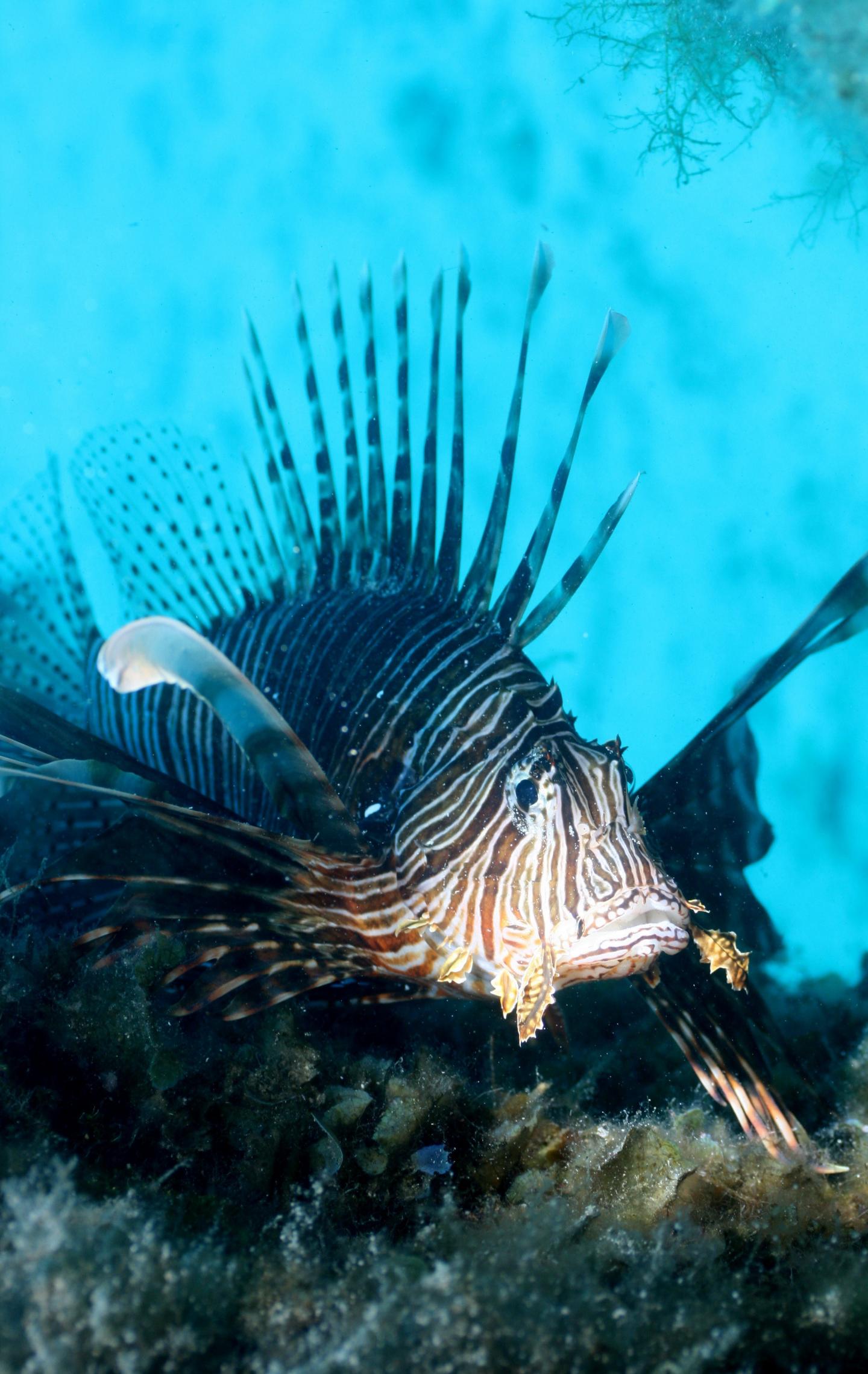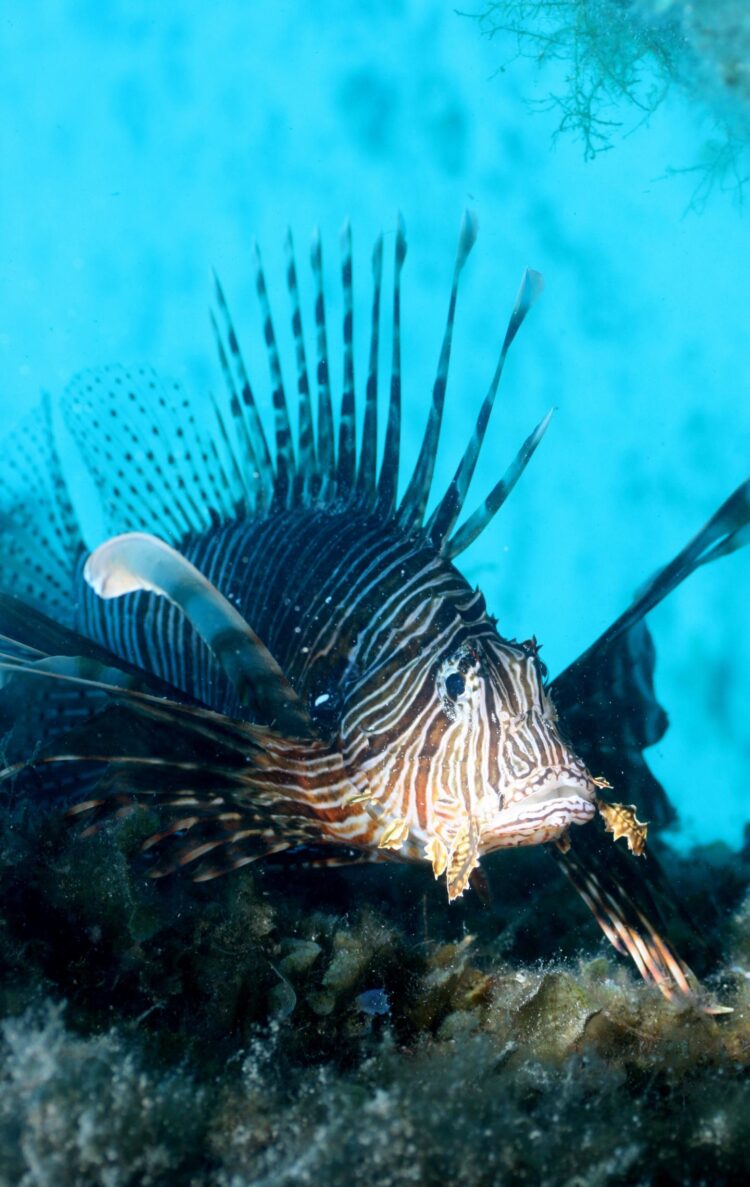
Credit: Marine and Environmental Research (MER) Lab
An invasive species first identified in the Mediterranean Sea just eight years ago is likely to become a permanent feature of the region, a new study suggests.
First seen off the coast of Cyprus in 2012, lionfish (Pterois miles) are now thriving and well-established in the area and across southern Europe.
However, the increasing densities observed over time – combined with the species’ generalist diet and consumption of ecologically and socio-economically important fish – may result in further disruption of an already stressed marine environment.
The scale of spread would suggest the lionfish cannot be eradicated, with scientists writing in the Journal of Fish Biology suggesting the development of a dedicated lionfish industry could help manage the situation and lessen some of the species’ negative impacts.
The research was carried out by a team of international scientists from the Marine and Environmental Research (MER) Lab in Cyprus, the University of Cyprus, the University of Plymouth (UK) and the Enalia Physis Environmental Research Centre (Cyprus).
They are among the collaborators on the four-year, €1.6million RELIONMED project – funded by the European Union – which aims to assess the history of the lionfish invasion in Cyprus, and identify ways to minimise its future impact.
Savva Ioannis, the publication’s lead author and a researcher at MER, said: “Among the numerous threats to our marine ecosystems, biological pollution is less apparent to the human perception. But in reality, it’s potent enough to disrupt the ecological balance. Although not all alien species successfully establish in or harm their new environment, some acclimatise relatively easy, exhibit rapid spread and exert catastrophic impacts on local marine communities. That has been the case with lionfish populations in the western Atlantic Ocean and now the story is repeating itself in the Mediterranean Sea.”
The current study examined some of the species’ biological and ecological characteristics, and found individuals measuring between 8 and 37cm in length, and aged 0.5 to four years old. Both factors signify their successful establishment around the island.
Female lionfish were generally greater in proportion than males, which scientists say is alarming since a single male can court several females, hence causing a population boom at a faster rate.
They also say the invasion characteristics resemble those of the western Atlantic Ocean. There, lionfish were first recorded off the coast of Florida in 1994, but by 2014 it was estimated that there were up to 1,000 lionfish per acre.
In the Mediterranean, lionfish are spreading fast along the island of Cyprus, forming large aggregations and achieving greater body size and faster growth rates than those in the Indian Ocean from where they immigrated.
The Mediterranean population also differs because although the lionfish show signs of spawning throughout the year, they exhibit a single major reproductive peak that coincides with seawater warming over the summer period.
Jason Hall-Spencer, Professor of Marine Biology at the University of Plymouth, said: “The recent rapid spread of lionfish in the Mediterranean is a serious concern for the balance of marine life in the region as this is the most damaging invasive fish species known to science. This study really does emphasise the need for biosecurity measures in the Suez canal which is like a cut artery, with marine invasive species pouring through.”
###
Media Contact
Alan Williams
[email protected]
Original Source
https:/
Related Journal Article
http://dx.





